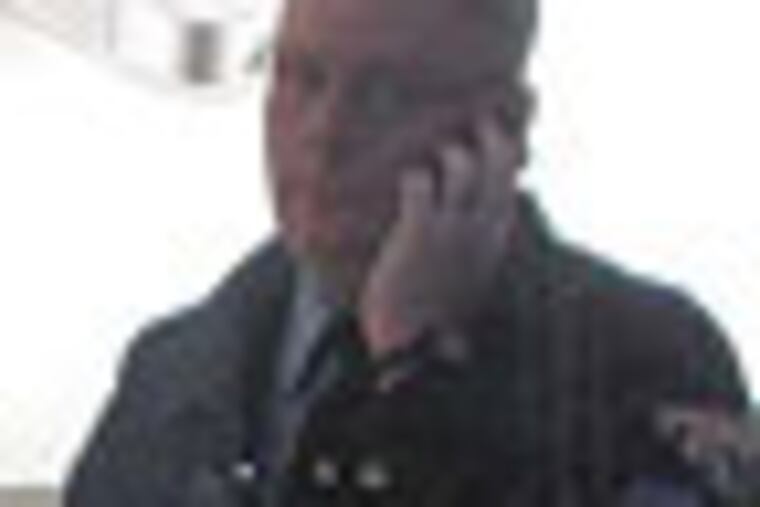City Howl Help Desk: IN NEED OF A COP? MAYBE YOU COULD RENT ONE
WANT YOUR very own Philadelphia police officer? Look around, and you'll start noticing that some businesses already have one. There's a uniformed officer on patrol all day, every day, inside the bustling Apple Store in Center City, and the Urban Outfitters down the block, too.

WANT YOUR very own Philadelphia police officer?
Look around, and you'll start noticing that some businesses already have one. There's a uniformed officer on patrol all day, every day, inside the bustling Apple Store in Center City, and the Urban Outfitters down the block, too.
You can find cops stationed at TD Banks all over the city. That's the bank's chosen form of security.
Ed Tettemer, a writer and entrepreneur, started noticing the officers a couple of years ago at what was then Commerce Bank (now TD Bank) at Broad and Sansom. He started to wonder: "Why does that one bank get a police officer?"
The answer is simple: That one bank gets a police officer because that one bank wants one, and more importantly, is willing to pay for it.
THESE GUNS FOR HIRE: Businesses that want individual service from the Police Department contract with the city, explained police spokesman Lt. Ray Evers. The business pays the Police Department, and the Police Department pays the officer.
Hundreds of businesses, out of the 90,000 in the city, have paid the Police Department for individual service, some of them regularly, like Apple, and some for one-time events, like patrol on a construction site.
The gigs always count as overtime, so they don't take away from the department's time or budget. And, though the work looks mind-numbing (Tettemer joked, "Is it punishment duty?"), cops are always happy to have it.
Overtime pays time-and-a-half. The going overtime rate for a cop is about $50/hour to $58/hour, depending on the cop's rank (plus about $6/hour if a police vehicle is involved), Evers said.
In comparison, security guards at private firms make anywhere from $8/hour to more than $13/hour, with benefits if they're unionized, said a source who has organized security officers, though a business would pay a private firm more than that because of overhead costs.
So businesses are likely paying top dollar for police security. But the arrangement still makes Tettemer wonder: "Is Philadelphia in the police business?Are officers public servants or private employees?"
It's true - cops-for-hire are a strange beast. They're available to anyone, with the exception of strip clubs (that atmosphere and a uniformed officer is "not a good combination," Evers said), and cops at bars need to stand outside. They're still working as cops, rather than private security guards, meaning they can respond to calls from outside their patron businesses. And, again, because the businesses are paying for overtime, these arrangements don't pull cops away from other work.
But seeing a cop stationed in a business makes you think: If this officer is game for more work, there are places in the city that would be happy for the protection. McPherson Square, in Kensington, for example, where neighbors have asked for more of a police presence. Capt. Thomas Davidson, who oversees that police district, has said that when the district has the resources, he sends officers there.
Businesses like Apple, Urban Outfitters and TD Bank get to jump the line because they can pay.
None of these businesses would comment on their choice to pay for police officers rather than security guards from a private firm.
Jennifer Wood, a criminal-justice professor at Temple University, said that police-for-hire is just a fact of life.
"The Police Department does their very best to provide equal protection to all," Wood said.
But, she said, the truth is that certain groups can afford to get a better chunk of that protection.
"It's simply a reality."